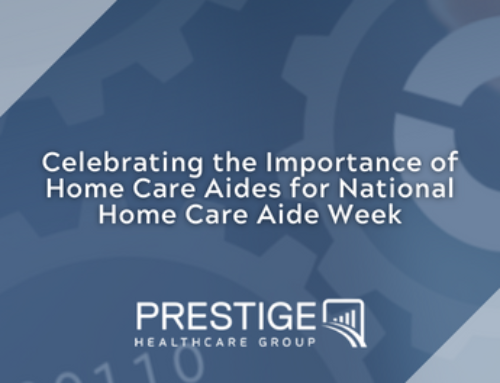Change for the Better, Not Worse – Despite Increase in Need, Medicare Proposes Cuts to Home Health Care
Home health care provides certain specific advantages for older Americans and their families. When a family recognizes that an aging person needs home care to live a fulfilling life, it’s not easy to accept. Being able to stay in their own home means continuing to live with as much independence as possible, and staying at home can also help save money in comparison to a full-time nursing home. The same goes for home care, if an older person or someone recovering from illness, surgery, or injury CAN stay at home for recovery, it can be advantageous to avoid exposure to hospital-based infections or readmissions.
Proposed cuts to medicare are threatening access to the advantages of home care and home health care. Today on the blog we wanted to help educate readers and inspire action to help prevent this change. Let’s take a look at what the cuts consist of, and why it matters.
8% Cut in Payments to Home Health Services
In the latest proposed rule, Medicare is considering implementing a permanent nearly 8% cut in payments to home health services. This would equate to roughly $1.33 billion in 2023, another $2 billion beginning in 2024 through a clawback for services that were provided to seniors and disabled people during the first 2 years of the pandemic, and an estimated $1.2billion clawback for services provided in 2022. Add it all up and you’ve got somewhere around $18 billion in estimated cuts over the next 10 years, which is clearly a devastating hit to over 3.5 million people whose home health care is covered by Medicare.
Let’s take a look at a few reasons why this isn’t a good idea.
Risk to Agencies
Agencies across the country are already struggling. With such a difficult last few years due to the pandemic, along with the challenges of extreme staffing shortages, agencies are already having a hard time. More than 1,000 agencies have closed in recent years, affecting access to home health care for over 300,000 Medicare beneficiaries. Increased cuts clearly affect an agency’s ability to staff and cover the growing demand for home care.
Demand for Home Health Care is Up, and Going Up
One of the most concerning, and confusing, aspects of the Medicare Home Care cuts is the reality that our population of Americans who benefit from Medicare is GROWING. According to Census data, “In less than two decades, the graying of America will be inescapable: Older adults are projected to outnumber kids for the first time in U.S. history. “ This PDF from the PQHH (Partnership for Quality Home Healthcare) demonstrates just how vital it is right now to be aware of who these cuts are affecting the most, some of the most at-risk and sickest Americans.
Caregiver Shortage
The cuts are going to certainly be felt by both agencies, and patients, but one group has been feeling this since even before the pandemic. Part of why it is so difficult to find quality staff is the reality that home health aides do not get paid enough. It is not easy work and requires a passionate and caring individual. Wages for home health aides are largely determined by the rate that Medicaid pays for their services, which is set by each state. States just aren’t keeping up with the cost of providing services. Failing to adequately support home health aides is a catch-22 because they help Medicaid keep costs down by keeping people out of nursing homes or other long-term facilities.
This widening gap between an aging population, a caregiver shortage, and potential cuts to Medicare just doesn’t make sense right now. Why would we take away from those who need it most, and more specifically, why now? When we are already seeing the need for more high-quality home care?
There is Hope, and Action You Can Take
It will be up to advocates for seniors and the home healthcare industry to help prevent these changes, but there is already some hope. Some lawmakers in Congress have introduced the “Preserving Access to Home Health Act of 2022” (H.R. 8581 and S. 4605) to try and prevent these changes from taking place. The bipartisan legislation is before the House and Senate currently, and would at least buy some time to impose these cuts after more time, until after 2026. This would at the very least allow Medicare to take more time to hone its payment system and ensure that people have access to care. Some stability is needed after one of the worst pandemics in U.S. history.
Support the Preserving Access to Home Health Act by heading to the PQHH site and sending an email to your federal lawmakers to ask them to support the Act and submit a letter to the editor of your local newspaper to raise awareness. This is clearly an issue of the utmost importance, and luckily there are things we can do as advocates of our industry to help. Spread the word and tell whoever you can how important it is that we take care of our patients, our agencies, and our caregivers! We are all in this together! Thanks for reading and remember to follow us on Linkedin for industry news and notes surrounding home health care.




